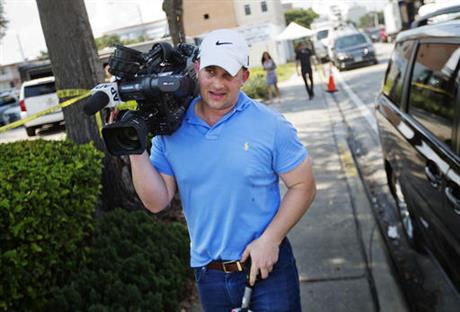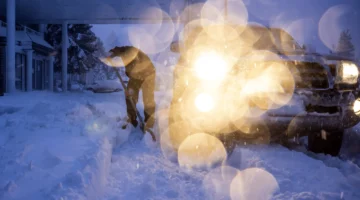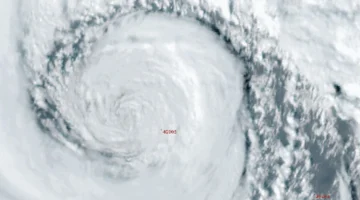AP reporter returns to cover massacre at site of college job
ORLANDO, Fla. (AP) — The call to my south Florida home asking me to grab my camera gear and hit the road came at 3 a.m. Sunday. I drove up the turnpike with tears rolling down my cheeks, traveling to cover an unspeakable tragedy unfolding in a place that helped me become the man I am today.
Years ago, to help put myself through college, I was a straight man working at a gay dance club. That club was Pulse.
As a cash-strapped college student at the University of Central Florida in Orlando, I was more than willing to try something outside the box to earn good money. Taking that job selling shots of alcohol was one of the best decisions I’ve ever made. The gay community virtually adopted me and eased my college expenses with its generosity.
It feels surreal to now be a member of the news media covering the massacre at Pulse. I’ve focused my camera on countless murder scenes and tragic stories, and I rarely get emotional. I use my lens to distance me and keep work separate from real life.
But Pulse was a big part of my personal life, and it remains a big part of me eight years later. It shaped me. It made me a better person because it dissolved my ignorance of a community fighting for its rights. It showed me that community was full of people with big hearts who took care of each other and protected each other, too often when their own families had rejected them.
I remember walking down the cobblestone street at 10 p.m. my first night, approaching the big double doors not knowing what to expect. It was like the first day of school. I was gripped with excitement and nerves. The minute I entered the club, I was greeted with smiles and hugs from people who didn’t even know me. “You must be the new guy!” they said.
That was the spirit of Pulse and of the gay community in Orlando — welcoming to everyone, even a straight man, a “breeder” like me.
I was given a tray of alcohol and told to sell it. I’ll admit that it was a little awkward at first, getting eyeballed by men. But the job paid well and it allowed me to continue a news internship that paid me nothing.
Slowly, the job became less awkward. Soon, I loved it. I had become a member of the Pulse community.
Over time, night after night, I started to make friends with some of the regulars. True friends. Lifelong friends. Among them were people in the TV industry who eventually helped jump-start my career.
Unified by the rhythm of the music at Pulse, your color, your creed or your sexual orientation didn’t matter. As the partiers piled in, I would have to dip, weave and dance my way through the packed crowd as drag queens lip-synched on stage. I often found myself cheering along, caught up in the infectious spirit, the whistles and claps. “Oh,” I’d think, “if my friends who made fun of me for working at the bar could see me now.”
I had been transformed as a person, and I found it beautiful. Why couldn’t this be the new normal? Why are these people persecuted for the way they were born?
That’s why I cried as I drove the 235 miles to that familiar Kaley exit off I-4.
This week, I cannot distance myself as my camera captures interviews with family members who lost loved ones, and survivors who spent agonizing hours feeling sure they would die. This is a Pulse I cannot recognize, a place of Saturday night revelry that became a killing ground.
Standing here on the hot pavement on Orange Avenue, looking through my camera as people sob and walk arm-in-arm down the street, my lens does not protect me. Not this time.
EDITOR’S NOTE _ Josh Replogle is a video journalist for The Associated Press, based in Miami. He helped put himself through college by working at the Pulse dance club for two years. He returned this week to cover the mass shooting at the club.










No Comment